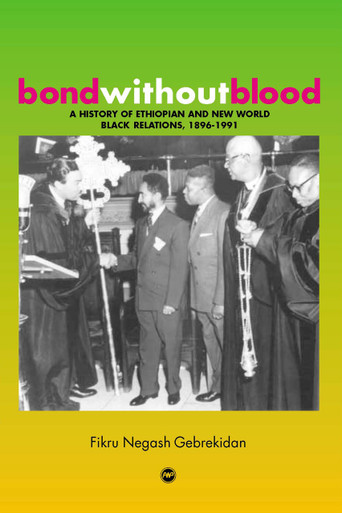Categories
Categories
Authors
Authors
BOND WITHOUT BLOOD: A History of Ethiopian and New World Black Relations, 1896-199, by Fikru Negash Gebrekidan
BOND WITHOUT BLOOD: A History of Ethiopian and New World Black Relations, 1896-199, by Fikru Negash Gebrekidan
Product Description
Bond without Blood constructs the narrative of the Ethiopian-Caribbean ties with three interwoven themes in mind: pan-African nationalism, repatriation, and cultural cross-fertilization. Central in all this is the evocative role of Ethiopian symbolism, the precursor of modern racial nationalism, in the shaping of a collective pan-black consciousness. The overall unitary thesis that holds this book together is that contemporary Ethiopian-Caribbean relation is deeper than a mere psychological preoccupation. Both societies, despite a great physical distance, continue to impact on each other's awareness through migration, religion, secular culture, as well as through a shared history of anti-colonial activism.
Throughout the first half of the 20th century, Ethiopia invoked the image of the promised land. In the same way diasporan Jews looked to Palestine, Zion, as a historic homeland, racial nationalists in the New World sought repatriation to Northeast Africa on cultural, spiritual and political grounds. Although famine and civil war have characterized Ethiopia's recent image abroad, the country continues to be celebrated by Rastafarians as an irreplaceable relic of history. Like the mythical bird Sankofa that never loses sight of its source, Rastafarians find in Ethiopia's mythic image a point of historical reference, a blueprint for future revival, a vision to cherish, an ideal to strive for.
Modern West Indian love affair with Ethiopia is, however, much more than a search for an idyllic past. Given the state-of-the-art means of communication, Ethiopia is no longer a far off exotica or a land of romantic abstraction. Modern Ethiopian-Caribbean ties are articulated by tangible historical events. The manifestation of Ethiopian art in Reggae, the Rastafarian deification of Haile Selassie, and the transplantation of the Ethiopian Orthodox Church in the English Caribbean, are all examples of Ethiopian cultural crossovers in the New World. Inversely, black American Soul and Jamaican Reggae have spiced Ethiopian urban culture, as have their political heroes and sports icons. In other words, Ethiopians have turned to secular black culture as a mark of cosmopolitan sophistication, while West Indians have turned toward Ethiopia in search of spiritual stimulation.
ABOUT THE AUTHOR
FIKRU NEGASH GEBREKIDAN is an assistant professor of History at St. Thomas University in Canada.
CATEGORY
History/AFRICA AND THE CARIBBEAN
 Loading... Please wait...
Loading... Please wait... 


